Research Office News
Pages
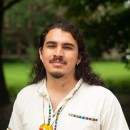 Nicolás Juárez Named a Robert Wood Johnson Foundation Health Policy Research Scholar
Nicolás Juárez Named a Robert Wood Johnson Foundation Health Policy Research ScholarPhD student Nicolás Juárez was named to the 2023 cohort of the Robert Wood Johnson Foundation’s Health Policy Research Scholars. The national leadership program is for full-time doctoral students who are entering their second year of study and are from populations underrepresented in specific doctoral disciplines and/or historically marginalized backgrounds.
“I am so excited to be part of the 2023 Health Policy Research Scholars cohort,” said Juarez. “I know another world is possible, and I am incredibly grateful to be given the time and resources to craft socially just and participatory approaches to environmental degradation and injustice.”
- October 3, 2023
- Learn more »
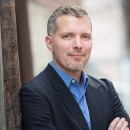 Luke Shaefer Discusses Income Inequality on “Detroit Today”
Luke Shaefer Discusses Income Inequality on “Detroit Today”Professor Luke Shaefer spoke with “Detroit Today” on WDET about how rising income inequality affects our economy and our society. “Workers today want to feel like people are looking out for them,” said Shaefer, “and they don’t feel that when they see CEOs making so much, and they don’t feel that when they don’t see government playing a role.”
- October 3, 2023
- Learn more »
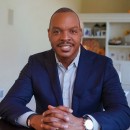 Jewel Woods Quoted in Psychology Today on the Importance of Representation
Jewel Woods Quoted in Psychology Today on the Importance of RepresentationLecturer Jewel Woods spoke with Psychology Today on the connection between therapists and their clients and why increasing the representation of men, particularly Black men, in the behavioral health workforce is so important. “There are so few male African-American clinicians, but we have tremendous opportunities to do good.”
- September 26, 2023
- Learn more »
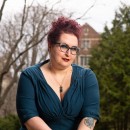 Shanna Kattari Edits New Guide on Sexuality and Disability
Shanna Kattari Edits New Guide on Sexuality and DisabilityAssociate Professor Shanna Kattari is the editor of “Exploring Sexuality and Disability: A Guide for Human Service Professionals,” published earlier this month. “It is the first book on sexuality and disability published specifically focused on those serving and supporting the disability community (compared to targeting only academics or only disabled people), and one of 10 books on sexuality and disability that exist in the world,” said Kattari.
Chapter editors include Lecturers Jax Kynn, Erin Martinez and Laura Yakas; PhD students E.B. Gross, Nicolas Juarez and Kari Sherwood; and MSW student syd lio riley.- September 26, 2023
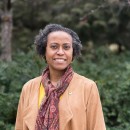 The Center for Equitable Family & Community Well-Being Receives $1 Million Grant from Washtenaw County
The Center for Equitable Family & Community Well-Being Receives $1 Million Grant from Washtenaw CountyThe Center for Equitable Family & Community Well-Being, led by Professor Trina Shanks, has received a $1 million contract to evaluate American Rescue Plan (ARP) money directed through the Washtenaw County Racial Equity Office.
Passed in March 2021, the ARP was designed to provide relief and support in the wake of the COVID-19 pandemic. The plan supports community investments in programs and infrastructure to build stronger, more equitable post-pandemic economies.
The center’s team of faculty, staff and students will evaluate county-approved projects, including a financial equity center, expansion of local broadband service, and a community priority fund, which will direct grants to nonprofits expanding capacity while cultivating sustainable funding sources to continue their work.
“These organizations serve parts of the county that historically have been underinvested in and not received substantial public funding,” Shanks said. Small organizations that stepped up during the pandemic—regarding public safety, homelessness, education and basic needs—can now grow, become secure and have sustainable impact.
“We believe that an intentional focus on those whose work hasn’t been acknowledged with federal funding, especially people of color, will bring greater equity to the system and involve the people closest to the solutions,” she said.
- September 23, 2023
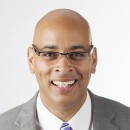 William Elliott III Answers Questions from WalletHub on the Student Loan Moratorium
William Elliott III Answers Questions from WalletHub on the Student Loan MoratoriumProfessor William Elliott III spoke with WalletHub about the ending of the student loan moratorium. “The student debt problem requires that policy both deal with its symptoms and its root cause,” said Elliott. “Paying for college should not be a lifelong sentence.”
- September 20, 2023
- Learn more »
 Matthew Bakko Successfully Defends Dissertation
Matthew Bakko Successfully Defends DissertationMatthew Bakko, Joint PhD in Social Work and Sociology, has successfully defended his dissertation, “Institutional Change in Municipal Public Safety and the Logics of Punishment and Care.” Sunggeun Park served on his committee and Katie Richards-Schuster co-chaired his committee.
Bakko has accepted a position as an Assistant Professor at Wayne State University.
- September 14, 2023
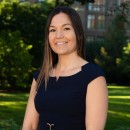
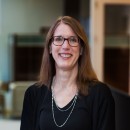
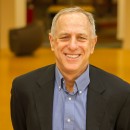 Lisa Fedina, Kristin Seefeldt, and Rich Tolman on Teams Chosen for New U-M Boost Program
Lisa Fedina, Kristin Seefeldt, and Rich Tolman on Teams Chosen for New U-M Boost ProgramAssistant Professor Lisa Fedina, Associate Professor Kristin Seefeldt, and Professor Rich Tolman all have projects selected to participate in U-M’s newly launched Boost program. Part of U-M’s Bold Challenges Initiative, the Boost program supports new and early-stage multidisciplinary teams whose ambitious, transdisciplinary projects have substantial potential for significant large-scale funding.
Fedina and Tolman’s interdisciplinary team’s project explores “Building Trustworthy Environments: Advancing Knowledge about Sexual and Gender-Based Violence in Universities, Healthcare, and Communities.” Seefeld is part of the interdisciplinary team studying “Community Tech Workers: Advancing a Sustainable Vision for Small Business Tech Support in Detroit."
- September 12, 2023
- Learn more »
 Luke Shaefer’s New Book Exploring “The Injustice of Place” is Published
Luke Shaefer’s New Book Exploring “The Injustice of Place” is PublishedProfessor Luke Shaefer’s latest book, “The Injustice of Place: Uncovering the Legacy of Poverty in America,” is now available. Together with his co-authors, Shaefer looked at poverty, combined with health outcomes and social mobility rates to examine America’s most disadvantaged communities — almost all of which are rural, and are concentrated in three regions: Appalachia, South Texas, and the southern Cotton Belt.
“Throughout these regions, we saw the same themes emerge again and again—unequal schooling, the collapse of social infrastructure, violence, entrenched public corruption, and structural racism embedded in government programs,” writes Shaefer.
- August 17, 2023
- Learn more »
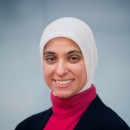 Fatima Salman Selected to Growing Michigan Together Council Workgroup
Fatima Salman Selected to Growing Michigan Together Council WorkgroupENGAGE Program Manager and Lecturer Fatima Salman has been named to the Higher Education workgroup of the Growing Michigan Together Council. “The diverse workgroup members of the Growing Michigan Together Council will be instrumental in our effort to grow our economy and population while protecting our natural resources,” said Governor Gretchen Whitmer. “These members represent a range of professions, communities, and perspectives—all of which are essential to developing a comprehensive strategy for growth. I look forward to hearing from the council and its workgroups later this year.”
- August 16, 2023
- Learn more »